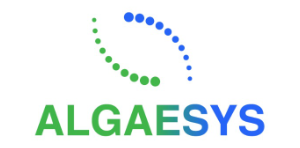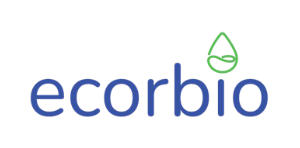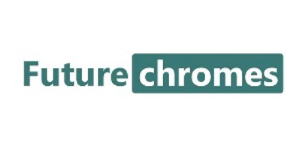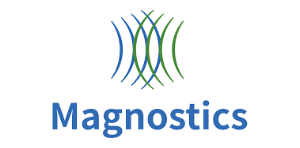Network 1: Starting from Biomass
Nanoadditives & Raw Materials
- Cooking and bleaching of cellulose pulp (CTP)
- Production of lignin from black liquors (CTP)
- Production of CNF by mechano-enzymatic homogenization and twin-screw extrusion (CTP)
- Production of CNF by enzymatic or chemical treatment and mechanical grinding (ITENE)
- Production of CNC by acid hydrolysis of cellulose (ITENE)
- Production of nanolignin through the application of mechanical treatment to lignin (ITENE)
- Development and production at pilot scale of nanocapsules by nanoemulsion (CENTI)
- Development of functional (sub)-microcapsules by spray drying (ITENE)
Network 2: Starting from Nanomaterials
Bionanocomposites
Network 2 is the group for the production of bionanocomposites and the pre-treatment needed to process the bionanomaterials that will be introduced in these bionanocomposites.
- Functionalization of nanoparticles to improve compatibility with the biopolymers (ITENE)
- Chromatogeny grafting to bring hydrophobic properties to hydrophilic substrates (CTP)
- Deposition of metallic nanoparticles onto nanoclay or CNF (ITENE)
- Spray drying of nanoadditives to obtain them in powder form (ITENE)
- Grinding and sieving of nanoadditives (ITENE)
-
- Compounding process of biopolymers with nanoadditives. Gravimetric & volumetric feeding
- Chemical modification of biopolymers by grafting nanomaterials through reactive extrusion.
- Packaging
- Automotive
- Packaging
- Preparation of stable dispersions of nanoadditives. CNF, CNC, nanoclays in coatings (ITENE)
- Dispersion of nanoparticles by in-situ polymerization (CIDAUT)
- Polymer-based dispersions with functional nanocapsules (CENTI)
Network 3: Starting from Bionanocomposites
Bionanoproducts
Network 3 includes pilot plants to obtain bionanoproducts from the different bionanocomposites of network 2.
- Production of monolayer films of biopolymers with bioadditives (CIDAUT)
- Production of multilayer films: coextrusion process up to 5 layers (ITENE)
- Rigid packaging prototypes obtained by thermoforming (ITENE)
- Production and evaluation of paper containing nanoadditives in mass (ITENE)
- Wet-lamination of CNF on paper and cardboard (CTP)
- Production of CNF self-standing films (lab and pilot scale) (CTP)
- Injection of rigid packaging: injection moulding of test specimens and packaging (ITENE)
- Manufacturing of 3D-printed moulds by SLA (ITENE)
- Biopolymer filaments for 3D printing (CIDAUT)
- 3D printing of prototypes by FDM (CIDAUT)
- Development of foaming formulations from bio-based polymers
- Extrusion Foaming: high-density and low-density applications
- Bead-foaming: low-density bead foams
- Solutions for moulding beads to generate complex parts
- Roll-to-roll slot-die coating and spray-coating
- Flexo and gravure coating
- Spray-coating on 2D and 3D-shape substrates
- Paper and board coating by blade, rod and size-press
Supporting technical services
Process Parametrization
- Optimization of composites formulation and processing parameters (IMT)
- Methodologies for nanocomposites virtual characterization (IMT)
- Prediction of the properties of nanocomposites from their constituents (IMT)
- Modelling of printing materials and simulation of 3D printed parts behaviour (CIDAUT)
Non-Technical Services
Route to market
- Definition of an Integrated Risk Assessment Approach (IATA) for nanobiomaterials
- Hazard profiling assessment services
- Exposure assessment services in workplaces
- Risk-management services
- Definition of Safe-by-Design strategies for the specific industrial cases
- Compostability: characterization, biodegradation, disintegration & compost quality (ITENE)
- Recyclability Analysis: Test of recyclability according to EN13430 standard (CTP)
- Assessment on the verification of compliance of any kind of food contact material
- Legislative vigilance
- Diagnosis and implementation of GMP standards
- Legal diagnosis/supplier management
- Documentation and guidance for the authorisation of new substances for plastic materials
- Technical support for the authorisation of recycled processes for plastic materials
- Regulatory compliance and advisory services (interpretation and implementation of regulatory requirements, legal design of business activities)
- Legal workshops on regulatory challenges & Regulatory Updates
- IPR Management & Protection: IP strategy and management & IP advisory services
Cleaning wipes composed of 85% viscose and 15% PLA to apply calendered by needle punch
- Chemical modification of PLA by reactive extrusion to provide antimicrobial properties; obtention of PLA stable fibers (PP11)
- Obtention needle punch wipes with different percentages of modified PLA (PP11)
Cellulose nanofibers reinforcements for paper-based materials in terms of mechanical and barrier properties
- CNF production (cooking and bleeching; PP2)
- Laboratory bulk addition trials in the paper palp (PP10)
- Wet lamination with CNF
- Prototypes obtention, bulk trials, characterization
Block copolymers as reinforcement of biobased/compostable formulations for film packaging, injection moulded cutlery and coffee capsules, and thermofoamed trays and containers
- Monomer development (PP1)
- Synthesis of block copolymer (PP3)
- Biomaterial formulation with the block-copolymer by melt compounding
- Film packaging by blow extrusion, trays by thermofoaming
- Validation of final product
Modified nanoclays will reinforce the biodegradable formulations, improving mechanical and barrier properties of 100% compostable packaging
- Modified nanoclays development (PP5)
- Masterbatch with modified nanoclays (PP7)
- Compounding of masterbatch with nanoclays into Novamonts biomaterial formulations
- Flexible packaging
- Characterization
Cellulose Nanofibers and Nanocrystals for cosmetic applications
- Obtaining cellulose nanofibres, nanocrystals and nanolignins (PP2)
- Cosmetic formulation with CNF and CNC for sun cream emulsion
- Solubility in water, concentration in emulsion, viscosity in water, electrolyzed capacity, hydration properties, texture and mechanical properties
- Characterization
- Compatibility test formulation
Bottle 100% compostable reinforced with nanoclays
- Bottle development and definition
- Development of nanoclays with Novamonts biopolymer (PP6)
- Compound of nanoad into biopolymeric matrix (PP7)
- Characterization
Biobased polypropylene with nanocellulose; complex shaped foamed parts for the automotive sector
- Nanocomposites compounding, bioPP with commercial organoclays (PP7)
- Foam applications; complex shaped parts fort he automotive sector through bead foaming and shaped by steam-chest moulding (PP13)
- Recyclability tests
- Mechanical characterization
Recyclable solution reinforced with nanocellulose and/or nanoclays to achieve high barrier performance
- CNF and nanoclays development (PP2)
- Compounding with bioPA with nanoclay (PP7)
- Obtention of the packaging by blown-film extrusion process
- Thermoformed for vacuum packed applications
- Mechanical characterization
- Barrier characterization, recyclability and food safety
Supported startups
Ecorbio produces biopolyols from waste biomass to replace unsustainable polyols in the production of polyurethane (PU) products, reducing the industry’s reliance on fossil fuels. However, the industry has been hesitant to embrace bio- materials due to high prices and low compatibility. Ecorbio aims to overcome these concerns by incorporating low- value waste biomass and developing nano-enabled biopolyols. Their goal is to showcase the technology at full scale and enter the polyol market. The support from Bionanopolys would help them facilitate state-of-the-art technology integrate multidisciplinary knowledge and improve the sustainability of the industry’s supply chains – all by overcoming the industry’s reluctance to pilot, experiment and take risks.
Encapsulae S.L. and Airnatech are developing FFP2 masks with a higher filtering capacity under a project called BioEPI. We are conducting tests, and it seems that we have achieved improvements in filtering by several orders of magnitude. However, we do not have the capacity to create a demonstrator of the final product. The objective of our participation in Bionanopolys OITB would be to produce masks with our additive-laden fabric and verify their filtering efficiency. We would be interested in working with biopolymers as the base of our mask and with PP as a control.
Kalichem is a manufacturer of active ingredients for beauty industry, with innovative and cosmeceutical products. It produces and distributes personal care specialties, mostly of natural origin and vegetal derivation. It offers a wide range of products for different applications, fields and certifications, such as sun protection, anti-bacterial, anti-ageing, skin, hair and body care, based on natural, biotech and patented technologies.






